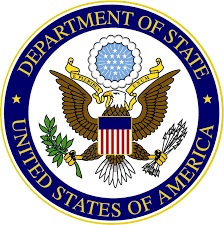U.S. State Department: Criticism of Zionist State Encourages Anti-Semitism
In the most recent edition of its annual report Contemporary Global Anti-Semitism released Thursday, March 13, the U.S. State Department wrote:
Anti-Semitism has proven to be an adaptive phenomenon. New forms of anti-Semitism have evolved. They often incorporate elements of traditional anti-Semitism. However, the distinguishing feature of the new anti-Semitism is criticism of Zionism or Israeli policy that whether intentionally or unintentionally has the effect of promoting prejudice against all Jews by demonizing Israel and Israelis and attributing Israels perceived faults to its Jewish character.
The new anti-Semitism is common throughout the Middle East and in Muslim communities in Europe, but it is not confined to these populations. For example, various United Nations bodies are asked each year on multiple occasions to commission investigations of what often are sensationalized reports of alleged atrocities and other violations of human rights by Israel. Various bodies have been set up within the UN system with the sole purpose of reporting on what is assumed to be ongoing, abusive Israeli behavior. The motive for such actions may be to defuse an immediate crisis, to show others in the Middle East that there are credible means of addressing their concerns other than resorting to violence, or to pursue other legitimate ends. But the collective effect of unremitting criticism of Israel, coupled with a failure to pay attention to regimes that are demonstrably guilty of grave violations, has the effect of reinforcing the notion that the Jewish state is one of the sources, if not the greatest source, of abuse of the rights of others, and thus intentionally or not encourages anti-Semitism.
Comparing contemporary Israeli policy to that of the Nazis is increasingly commonplace. Anti-Semitism couched as criticism of Zionism or Israel often escapes condemnation since it can be more subtle than traditional forms of anti-Semitism, and promoting anti-Semitic attitudes may not be the conscious intent of the purveyor. Israels policies and practices must be subject to responsible criticism and scrutiny to the same degree as those of any other country. At the same time, those criticizing Israel have a responsibility to consider the effect their actions may have in prompting hatred of Jews. At times hostility toward Israel has translated into physical violence directed at Jews in general. There was, for example, a sharp upsurge in anti-Semitic incidents worldwide during the conflict between Hizballah and Israel in the summer of 2006.

What do the authors of this report mean by saying that "those criticizing Israel have a responsibility to consider the effect their actions may have in prompting hatred of Jews"? Perhaps they mean that Jews in general are not Zionists, and thus when criticism of Zionism leads to the criticism of Jews, this is unfair, racist and anti-Semitic. But then, it would seem, the problem would have a very simple solution: to publicize the fact that Jews in general are not Zionists. Why does the State Department stop short of saying that?
Furthermore, must we silence all criticism of a particular Jew or group of Jews because it might lead to hatred of all Jews? It would logically follow from this that we should never criticize any member of any ethnic group because it might lead to hatred of the entire group.
On the other hand, perhaps the authors of the report mean that all Jews are, in fact, Zionists, and thus one cannot stop Jews in general from being criticized on the basis of disassociating them from the Zionists, because this would be false. But if so, then why is criticism of all Jews to be considered anti-Semitism? Anti-Semitism means hatred of the Jews because of their ethnic makeup. Criticism of Jews for something they do or believe is just as valid as criticism of any other organization of people with common goals or beliefs.
The truth is somewhere in between. There are, unfortunately, many Jews throughout the world who are Zionists, as well as many who are not Zionists. Jews and non-Jews who are truly interested in preventing anti-Semitism should be working to bring the distinctions between different groups of Jews more into the open, so that criticism of Zionism can be more accurately directed and will not appear to be racially-based criticism of Jews. For example, our own group has been working to publicize the opposition of authentic Torah-observant Jewry to Zionism.